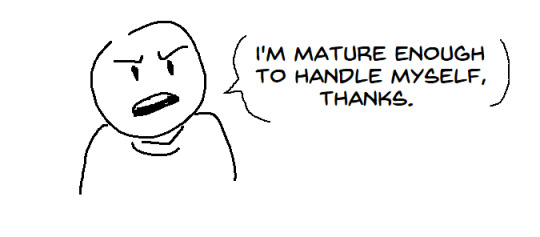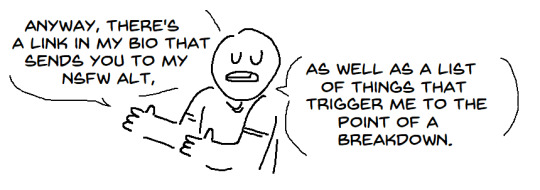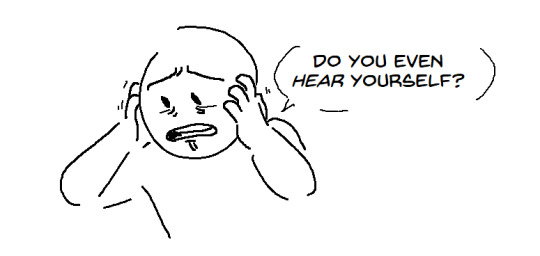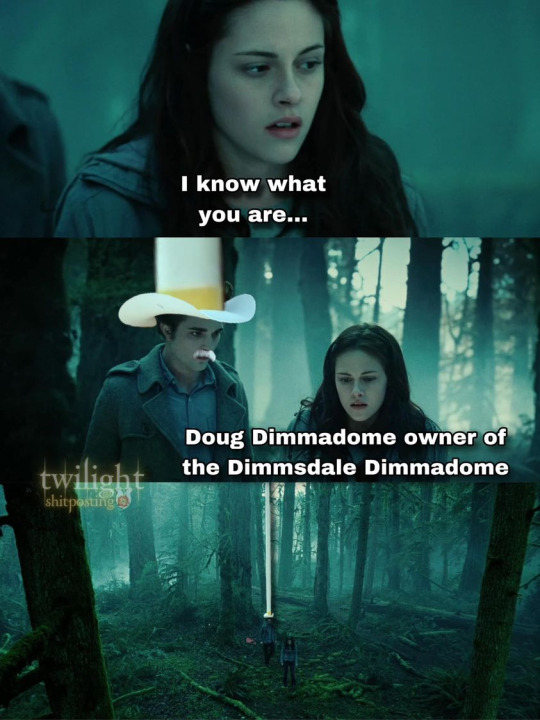Text
A Crown of Bone
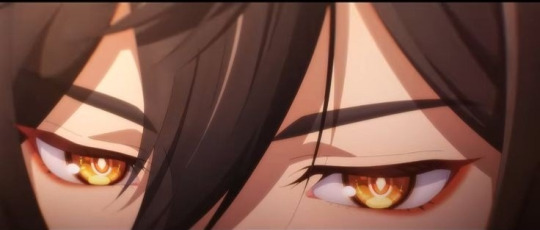
Pairing: Changeling! Reader x Fae Lord! Zhongli
Warnings: Graphic Depictions of Violence
Additional Tags: Fae!AU, Implied Reincarnated Lovers!AU
AO3 link
Notes: Thank you to @sgri-sgri for beta-ing this!

Summary:
Imagine being a changeling child and living your life in quiet yearning.
You had been found in the dead of winter, or so your mother tells you, a half-fey child abandoned in a snowbank.
Imagine a lifetime of secrets: your first memories are of a spring that does not belong to the mortal realm. You dream of golden eyes gleaming at you from the darkness as your mother picked you up and carried you away.
Imagine keeping these things to yourself, tucked away against the curve of your ribs, right next to your slow-beating heart. Secrets that are half-yearning and half-memory: someone had left you there in that snowbank, and there are days that you think that they did not do so willingly.
And you hope that one day, they will find you again.

Story:
Imagine being a changeling child and living your life in quiet yearning.
It is a life of hollow hunger and a longing for something you cannot quite name.
You had been found in the dead of winter, or so your mother tells you, a half-fey child abandoned in a snowbank. She has told you this story many times before. Sometimes in fond reminiscence, more often in hushed whispers, her eyes fearful and haunted as she recalled your unnatural stillness, the way the snowflakes that landed on your skin did not melt.
You don’t answer whenever she tells these stories; she is already frightened enough. You do not tell her that while you had been found during winter, your first memories were of spring.
Except it is not the spring of Snezhnaya, where you had been raised. It is not the cold sun, finally rising after months of not showing its face. Nor is it the first tentative buds of snowdrops, pushing their way up from the melting snow.
The spring you remember is brilliant, bursting with vivid color. You remember walking underneath trees whose leaves were the color of fire; you remember the taste of wine against your tongue.
And sometimes, in those odd moments between dreaming and waking, you would remember seeing the gold of someone’s eyes and the curve of black, gleaming bone.
You do not mention this to your mother, who is already half-afraid of you. Nor to your father, who gazes at you with a resigned sort of acceptance.
Instead, you keep it to yourself, tucked away against the curve of your ribs, right next to your slow-beating heart. A secret that is half-yearning and half-memory: someone had left you there in that snowbank, and there are days that you think that they did not do so willingly.
Imagine arriving in Liyue during winter, a season of cold and gnawing hunger. The trees that dot the landscape are now bare, their branches the color of bleached bone. Whatever flowers that once bloomed in its fields are now gone, their colorless stems now covered by frost.
It is also a time when ice forms in the harbor, icicles as thick as spears, cresting with each wave. No ship dares to land on the Liyue Harbor during winter. During winter, food, paper, and cloth grow scarce. The shrines you pass by on the road show only a few, meager offerings: a single piece of fruit, the skin shriveled and mottled with mold. A carved wooden statue of a carriage, half-burnt, for fire does not survive long in this cold. You wonder what the Good Folk make of such meager offerings, whether they are as quick to anger as your Tsaritsa.
Something gleams at the bottom of the bowl, wet and dark. You come closer to inspect it and feel a shiver of disgust when you realize what it is.
Teeth, still bloody and steaming in the cold air. You step away, stomach twisting, and you think: the Tsaritsa would approve.
Perhaps Liyue and Snezhnaya have more in common than you thought.
You reach your destination, some remote village on the outskirts of Liyue, and feel a sudden shock of fear at what you find there. The woman who greets you stumbling at the gates is already half a stranger. The Aunt Baiji you knew had been both vivid and beautiful, with dark hair that gleamed like oil even in the dim sunlight of Sneznahya’s endless winter.
She had been strong, too. As a child, you remember how her voice shook the walls of your small household, as she shouted down both of your parents. You remember looking down at your burned hands, still steaming from holding iron cutlery, and wondering if you are worthy of such rage.
She had handed you a pair of chopsticks before she left, carved from bamboo and coated in dark lacquer.
“They’ll see sense soon, little Dragonfly,” she had said. “In the meantime, use these instead.”
You had carried the chopsticks with you on the long journey to Liyue, wrapped in wool like a shroud. You find that they give you courage for what you are planning to do.
They give you the courage to lie now, and it tastes like iron against your teeth.
“It’s good to see you, Auntie.”
But it isn’t. The woman who throws her trembling arms around you looks nothing like the one who had defended you all her life. To hold her is like holding a skeleton, you can feel the individual knobs in her spine, the skin hanging loose over her flesh.
You feel it then, like the flitting of a bird against your chest: fury, bright and pure. And with it, the determination to see this through.
“You came,” she whispers, and her voice is as insubstantial as a ghost. “Oh, my love, when I got your letter, I didn’t believe…You know I would never ask you to do this. You don’t have to do this.”
Yet, in her eyes, you can see her raw, desperate grief and the way she swallows down her tears as if they are poison in her throat.
“Yes.” You say it as gently as you can, and even then, she flinches. “I do. Show it to me.”
She sucks in her breath as if struck, and you hasten to add, “It’s not him, Auntie. You know this.”
She gives you a shaky smile, one that makes the wrinkles on her face as deep as mountain crags. “I know, Dragonfly, I know. But it–”
Her smile shakes, then cracks like porcelain, and with it comes her tears. First a trickle, then a flood. And you watch as the woman who had never shed a tear in your memory cries as if she will never stop.
“I’m sorry, Dragonfly, it just looks so much like him…I can’t…He’s still lying there.”
Her head is bowed, her thin shoulders shaking, as if the weight of her grief is enough to split her in two. Watching her, you feel a knot forming in your throat, and you wonder if grief can be contagious.
You take her hand in both of yours, guiding her. She has grown so thin that you can feel the bones of her wrists pushing up against her skin, the way the current of rivers curve over stones.
“Let me show you, Auntie,” you say. “There is nothing underneath.”
She lets you lead her, childlike, through the doors of her own house and it is as bare as you have ever seen it. Gone are the oil paintings from Mondstadt, the tiny figurines carved from noctilus jade bartered from night market stalls at the Harbor, the bolts of embroidered cloth you had sent over from Snezhnaya. Apart from the small cot lying in the corner of the room, the small room is almost obscene in its nakedness.
You say nothing, but an image unfurls over your mind: that of your aunt selling her belongings, piecemeals, making offering after offering to appease the ones who have taken her son.
You remember the teeth on the shrine, still steaming from the heat of someone’s mouth, and you shiver.
“He’s in my room.” She pauses to inhale, as if she has to force the next words out. “I can’t bear to leave him. Or look at him. I’ve been sleeping here instead.”
The crib is made out of woven horsetail; you can see the pink cotton of their seeds curling around its base like flowers. A mobile of figurines carved out of sandalwood hung above it, circling slowly, providing toys for a child that neither saw nor cared about them.
Behind you, you can feel Aunt Baiji shaking.
“We don’t have to do this,” she whispers through bloodless lips. “Perhaps we are wrong. There is still time to call the funeral parlor. Burn offerings for him in the afterlife.”
Her hand is cold and shaking as she puts it on your shoulder; it is like being touched by a corpse. And for just a moment, you feel a shimmer of dread, the world splitting as if into fractals.
Aunt Baiji’s son’s had been declared dead for nearly a month, the time it took you to prepare and travel to Liyue. It had been long enough that the hell gates that welcome the souls to the afterlife are about to close.
During this time, the proper offerings should have been burned to accompany him to the afterlife: joss money to line his pockets for bribes, delicate wooden carvings of servants to serve him, a pagoda carefully painted on rice paper so that he may have a place to stay in the afterlife.
And perhaps, most importantly, food. So he did not spend his afterlife with an endless hunger gnawing at his belly.
And just for a moment, you are scared to look into that crib. Nausea pulses in your gut like an open wound as you take one step, and another, then another. Your fingers curl around the woven horsetails, and your eyes seek the mobiles gently swaying in the wind.
And you look down.
You had been there to witness every moment of Aunt Baiji’s pregnancy, written in careful hand in her many, many letters to you. You had been the first person she told about when she felt the flutter of quickening in her belly, when she first felt her son kick inside her.
I have not seen him yet, but he already owns half my heart. She had written once, the letter feeling soft and sun-warmed against your shaking hands.
I have decided to name him Sevastyan. After his father. I cannot wait until the two of you meet each other. You will love him like a brother.
Brother.
In Snezhnaya, where nearly everyone knows your story, you had nothing to keep you warm. There is only your mother’s wintery stares and your father’s endless silence. But now, in a remote village on the outskirts of Liyue, the word beats against your throat like a swallowed star.
But when you look down, the child inside the crib does not look like a brother.
After he was born, Aunt Baiji sent you letter after letter, describing the dark mess of curls on his head and the fat of his cheeks that resembled fried dumplings. She described the shape of his mouth that resembled his grandmother’s and the curve of his nose that was like his father’s.
He is perfect, my Sevastyan, she had written. He is beautiful.
And he is. But the child in the crib has all the cold beauty of a carved statue, perfectly still and silent. No dreams chased behind his closed eyes and his chest did not flutter with each breath.
He does not look dead like the doctor had said. Instead, he looks like he had never been alive.
This is how you know, all those months ago. You have read enough stories and listened to enough legends about your kind not to know. The child in the crib is not Sevas, as your Aunt Baiji had feared.
Your hand hovers over his face, and on your fingers you can see the numerous cuts and bruises from your long hours of labor.
You’re shaking.
Perhaps from the cold, perhaps from fear.
As your hands close over the child’s face, you can feel it, magic pulsing against your fingers like the threads in a loom. All it takes is a slight tug and the weaving collapses. Aunt Baiji lets out a wail as the child’s face warps and twists, then it finally collapses into a pile of twigs and dried leaves.
“Oh, oh Archons. My son is alive. But they–they’ve…”
Her lips tremble, unable to form the next words.
“The Fae have taken him,” you say. “And I mean to get him back.”
And then your legs are collapsing from underneath you, shaking so hard that you are afraid that they will never stop.
And then your heart is pounding against the cage of your ribs like a frantic, dying bird.
You can feel your bones creaking, pinned under the enormity of what you must do. It is a surprise that the weight of it doesn’t crush you.
For the Fae have taken your aunt’s son, and you mean to get him back.
Imagine wintertime in Liyue and all of its quiet menace. It is a time when the trees shed their golden foliage, leaving their branches bare and skeletal. No birdsong echoes through the woods during the winter, and no crystalflies light the way with their glowing wings.
It is only the light of the moon that guides you as you deliberately stray away from the beaten path. It is something children learn, even in Snezhnaya, never to do.
Do not go too deep into the forest. Do not stray off the path. Do not catch the attention of those who dwell in the dark.
You have caught glimpses of them as a child: the glint of the moonlight reflecting off their eyes as they peer at you through the foliage, the curl of fingers with too many joints as they grasp onto your windowsill.
You had always wanted to stumble after them, wanted to follow them down into the dark.
Take me with you, you had wanted to say. Tell me why you left me here.
But they never did.
This time, however, this time you mean to give them no choice.
You stand there, at the heart of the forest, shivering violently, for the robes you are wearing are not made for the cold. Instead, the robes you are wearing are reminiscent of spring. For the first warm day in Snezhnaya, when the sun’s rays finally split the frozen river in two, signaling the end of the cold months.
The silk is the blue color of rushing water, bursting free from underneath the ice. You had used silver thread to embroider the slow dance of the last of the snowflakes, doomed to melt before they ever touched the ground.
Your fingers still ache with the effort of embroidering them into the fabric. And yet, you consider the effort well worth it. The Good Folk are a hungry lot, and they were known to covet things they don’t have: love, music, and things of great beauty. They are often known to take the most well-cared-for children, the best dancers, the singers whose voices could wring tears from a stone.
If you are going to draw their attention, you need to bring your best creations.
Hours pass or perhaps only minutes–past a certain point, it doesn’t matter. Your fingers feel frozen, your face raw and frostbitten from the wind.
And finally, you see them.
Your breath stutters in your throat as they slowly form into existence, like the hazy figures in a dream. First came the light of their bonfire, only a faint glow in the beginning, then brighter and higher until you can feel its warmth spreading across your fingertips.
Then their music, the sound of lyre and war drums. It is something ancient and wild and speaks to the very core of you. You can feel your muscles tensing as if your body wishes to join in the laughter and the revelry. Or perhaps it longs to run free in the forest, and sink your teeth into the throat of some small, living creature, to feel the wild beat of its heart as it dies in your hands.
And then, you can see them. The Fae.
They are known to have as many forms: as many as there are types of fish in the ocean or birds in the sky. The ones who came to you this time are unfamiliar: the curves of a naked woman combined with flowers you have seen in the field. Their hair flows into petals, and their skin is as smooth and unblemished as the inside of a tulip.
There are three of them, dancing around the bonfire, their feet so light that they barely touch the earth. And yet, in the shadows, you can see the twisted forms of creatures, their clawed hands plucking the strings on a lyre, their palms beating a frantic beat on the drums. You can feel your pulse leap to the sound of it.
But you do not move to join them, even as your fingernails dig into the meat of your palm, even as you down on your lip so hard that you taste blood.
It is they who must approach you.
And finally, finally, one of them breaks free from the circle to approach you. You can hear the other two, giggling and making jokes, their laughter resembling the chittering of insects.
The one who approaches you has the pale blue skin of a mint flower. Leaves sprout from the top of her head, flowing down to her shoulders like hair. But the eyes that behold you are the eyes of a reptile: cold and calculating and nothing human in them at all.
Her hand is cold as she grasps the sleeve of your robes.
“This is beautiful,” she declares, and her breath sends a gust of cold wind against your cheeks. “Almost like a river before it is frozen over. Please, may I wear it?”
“You may wear it.” You speak through gritted teeth so that she can’t see you chatter. “For a price.”
The smile that unfurls across her face is slow and fluid, the slow trickle of water before the flood.
The hand that was once on your sleeve slides down your skin, until they are resting on your near-frozen fingertips. She looks at you, eyes half-lidded, and you see that her eyelashes are rimmed with frost.
In her presence, you find that the wind does not howl so loud and that you can no longer feel the cold. In fact, you begin to feel warm, as if there is a fire burning at the center of you.
“Name it.” Her voice comes as if from very far away. “I will pay a great number of things to wear a robe of such beauty.”
A price?
Your thoughts are muddled, like the hazy silhouette of people in a snowstorm. Your skin is burning.
You remember feeling the same way, in the snowbank where your mother found you, so many years ago. The same heat at the center of you. The same exhaustion.
And you remember a hand reaching out to you, a flash of gold through the trees.
The memory sears through your thoughts like a bolt of lightning splitting open the sky. You know this creature, and you know her story. Of the travelers she leaves on snowy mountaintops, naked, except for the frost that grows on their skin like moss. You step back from her, your voice almost cracking from the cold.
“My Aunt’s son. Your kind have taken him.”
The smile she gives you is nothing human, and when she reaches for you again, this time, you know enough to avoid her.
“Ah, the child. We left another in his place so she doesn’t miss him.”
“Wood and dried leaves make for a poor son,” you snap. “Give him back and you may wear the robe for the night.”
She grins at you, and you can see bits of gristle stuck between her teeth. Behind her, the fire roars, and her two companions dance faster. The creatures playing the instruments stamp their feet and lift their voices, their howls feral and inhuman. You can feel the pull of their magic as if your skin means to rip free from your body and, still streaking blood, join their dance across the snow.
“Of course. But first, you must join us around the fire.”
And this, you know from the countless stories. Of young men and women, joining the Fae on moonless nights, dancing to the beat of their wild, dark songs until daybreak.
And if the Fae end up liking you, they may grant you a favor. A good harvest. A fated marriage.
A son.
This time, when the snow-woman reaches for your hand, you do not flinch as frost forms where your skin meets hers. Your shoes barely skim the earth as she leads you to the fire, where the music thrums in your ears as frantic as a pulse. You grit your teeth even as the fire burns high enough to blot out the stars.
You remind yourself that you must be brave.
But perhaps, you have not read enough stories.
Or perhaps the snow-woman wishes only to trick you.
Because before you start to dance with them, you make the mistake of glancing at one of the musicians’ faces.
You wake under sunlight and with the taste of blood in your mouth.
You do not have the boy.
What happened?
You try to sit up, only to gasp and curl around yourself like a newborn. Your entire face is pulsing with pain. When you touch it, your hands come away stained with blood.
And then, you remember.
Not the musician’s face, but what you had done after you had seen it. You had raked your fingers across your face and dug deep furrows into your cheeks. You had taken your thumbs to your eyes and pushed until they popped like overripe fruit.
You had taken out your eyes.
Yet, you can still see.
Carefully, with the gentleness of one afraid of what they might find, you explore your face. No scars meet your questing fingers, and your eyes are still intact in their sockets.
And yet, you remember: lying in the snow, blinded and sobbing, hot blood trickling from your eyes like tears. You remember, too, listening to the three beautiful creatures arguing about who got to wear the robes first. Their voices growing higher and angrier until they resembled the chittering of insects.
You remember they had come at you with teeth and claws, grabbing at whatever bit of fabric they could reach. Pulling at the silver thread so that they unraveled from their patterns, curved claws slashing away at the sleeves, cutting the soft skin underneath.
You remember screaming for them to stop.
What had happened?
By all rights, you should be dead. Blinded, and dead.
The robes you had worked so hard to make are shredded. You flush, realizing that you are almost naked, but the skin that peeks through is whole and unblemished.
“How–”
Your voice is cracked and hoarse. You can taste blood on your lips.
How are you alive?
You scour your memory for the answer but you do not know the answer. You only remember one other thing. Your hand is shaking as you raise it to your eyes so that it blocks your view of the forest.
Your skin is cold. You can feel the calluses formed from your many hours of sewing over the years.
But it is not the hand that rested over your eyes last night.
It is not the hand that healed you.
Someone had saved you last night. Someone who could heal the many cuts the Fae have left on your skin, someone who could restore your sight and your face, after you had taken your fingers to them.
And yet, you cannot remember who.
You remember only one other thing, seen only in the fleeting edges of your restored vision: a great curve of bone, rising over you, gleaming as dark as obsidian.
Imagine Liyue in wintertime, when the rivers grow black and treacherous. No man or animal dares cross them, lest they come out blue and frozen on the other side. Underneath the wild torrents, you can see the twisting images of the creatures you’ve come to seek.
The image of a child, face bloated and black with rot, rises briefly to the surface. You remember, three years past, about a fisherman’s son who had drowned in this river. His playmates had claimed that they had seen him playing with a nobleman’s horse near the water. A scream rises in your throat like vomit when you realize that his eyes are boiling with maggots.
You stumble, water lapping at your ankles, making the hem of your robes heavy. You remember your own eyes, the sensation of them popping underneath your thumbs.
Perhaps you couldn’t do this.
Aunt Baiji will not blame you if you come back empty-handed. You know the truth of this with a heaviness in your bones. Perhaps this would have been easier if you knew that she would rage, that she would point an accusing finger at you and demand her child back.
But she wouldn’t. In fact, in her letters, she had begged you not to try. She would live if she lost her son, she wrote.
But she could not lose you both.
For her, you think as you step back into the river. For her.
And, perhaps selfishly, for something else. For the person who had placed their hand over your eyes and healed you.
For answers.
This time, you do not have to wait as long. The Fae do not come with the beating of drums or the sweet lilt of plucked lyres. Instead, they arrive in silence, rising from the churning waves, their forms still streaming water. Water-creatures that look like herons flap their wings, droplets of water flinging from them like feathers.
A trio of mallards circle the river, their bodies rising from the river, their feathers gleaming with barely-formed frost.
The boy who had drowned in the river grins at you from the banks. You can smell the stink of him: rot and the congealed blood of gutted fish, left to soak the deck of a fisherman’s boat.
And finally, it arrives. Faceless, its body formed from the river’s black torrents, it floats through the air as if cutting through water. This creature is old, old enough that no one alive remembers its name. All that is left are the stories: of the creature who lived in the rivers near Qingce Village, and who drowned any mortal who dared approach.
Its flippers glow like the wings of crystalflies as it approaches, beholding you with one gleaming eye.
“Your clothes are beautiful.” Its voice echoes through your head. You can feel it thumping against the walls of your skull.
You are struck with the sudden realization that this thing, just with its voice, can shatter you apart. Make its voice loud enough that your bones splinter into a thousand tiny pieces, like rocks of a cliffside crumbled away by the ceaseless waves.
You struggle to form an answer. Your thoughts are muddled as if your head is underwater.
As a child, you had spent hours upon hours in tea shops, sipping fragrant osmanthus tea and listening to the storytellers on the stage, their voices heavy with emotion and tragedy. Liyue is an old land, rife with legends, and you collected them like a magpie collected treasure for its nest.
You wear one of their stories now.
This time, your robes are the color of the skies over Liyue. And in its fabric, you have embroidered thousands of crystalflies, their wings glowing with the color of starlight.
It is one of Liyue’s most famous legends and one of its most tragic.
“Take them off and leave them here, so that they can decorate my riverbed,” the Oceanid demands.
The glow of its single eye is endless, and you find it nearly impossible to look away.
But still, you manage to shake your head.
“You can have my robes. But only if you are willing to trade.”
You can feel its disappointment and roiling anger like a sudden weight on your chest. You feel a sudden, fleeting panic that your cribs might crack in two, but it is all swept away by Oceanid’s rage. For thousands of years, it has been worshiped, fishermen and kings alike leaving offerings at its banks.
And yet you, stinking of your mortality, come to its waters and demand a trade?
Your skull thumps with the weight of its emotions, and for a second, you are sure that you will collapse. Your skin will split open, your bones will splinter, and blood will explode out of your screaming lips as thousands of gallons of pressure bear down upon you. You imagine your organs floating to the surface of the river, to be feasted upon by the mallards and the smiling child sitting on the banks.
But then, a word rises through your thoughts like an oncoming wave: Rhodeia.
And you are sure that you have found the creature’s name.
“Rhodeia.” Your word comes as if from underwater. “I have a story.”
You shake your sleeves so that the pale threads glint in the dim moonlight. You direct its attention to the crystalflies you have sewn into the fabric, so detailed it seems as if they are taking flight. On your back, the crystaflies form a bridge, cutting straight through the heavens, so that two lovers can walk across the sky.
You had embroidered their entwined figures just below your neck, at the curve of your spine. The star-crossed lovers of Liyue, cursed only to meet once a year for a single day.
And then you can breathe again, falling to your hands and knees on the soft, sucking mud of Rhodeia’s riverbanks. It floats in the air in silence, heedless of your strangled coughs. Somehow, you are sure that it is staring at the embroidery on your back. At the two entwined figures.
“Fine,” it says. “Name your price.”
Your lungs burn as you struggle for words. “I have a cousin who has been taken away by your people. Give him back to me, and my robes may decorate your riverbed until the end of time.”
“Done.”
Its tone is clipped and precise. Impatient. It holds out a limb to you, like the way a human would hold out a hand. It could have been a wing of a flightless bird or the fins of a leaping trout. Or it could have been nothing at all, as shapeless as water.
You grit your teeth. The Oceanid had agreed too easily.
“Show him to me, so I know that you’re not lying. Show him to me, so I know that I am not trading my work for bones.”
It beholds you, silent. And then, the churning waters of the river change, turning smooth as glass. In them, you can see him. Sevastyan.
And you think to yourself: he really is beautiful. This is not the carved statue that lay still in its crib. This is an actual boy, whose fat little fists wave in the air as he screws his face up to cry. He is still swaddled in the blankets you had sent for him, and you feel a painful twist in your chest as you remember your aunt writing that he adored the one decorated with sea turtles.
When he opens his eyes, you realize with a start that they are the same color as your Aunt Baiji’s. Black like the wings of beetles that crawled on your hand like a child.
These are the eyes of someone who had loved and defended you your whole life. Strange as you are, half-human as you are.
Your breath catches in your throat as Aunt Baiji’s words rise in your memory, as relentless as an oncoming tide: I have not seen him yet, but he already owns half my heart.
I cannot wait until the two of you meet each other.
The image dissolves into foam and the river begins to flow once more. You let out a startled cry, reaching out a shaking hand towards the current.
“Do we have a deal?”
In your head, you can feel the Oceanid’s biting impatience. You stand on shaking feet, the mud still thick on your open palms, between your toes.
And you let Rhodeia lead you into the river.
You wake to the feeling of silt and mud curving underneath your spine. Your clothes are sodden, making your movements slow and your limbs heavy. The fabric is heavy, swollen beyond repair, the rich dye bleeding off of it like molten silver.
The dress is ruined.
And you do not have Sevastyan back.
You place a shaking hand over your eyes and curse softly.
“Fuck.”
Disappointment churns your gut like acid, and you are gripped with the sudden urge to vomit. There is a reason why people had spent centuries leaving offerings at the Oceanid’s banks: unlike the Fae in the woods, it is known to keep its bargains.
Then what happened?
The child. At the banks.
You remember his shadow, darting underneath the waters as the Oceanid guided you. A hand, webbed and pale and bloated with rot, reaching out to grab and pull you under. The rich fabric of your clothes had immediately become heavy and sodden, making you unable to swim.
Unable to move.
Perhaps the creature in the river had been a child once, but he is certainly more–or less–than that now. He had darted through your flailing limbs as nimbly as a fish. You remember seeing its twisting shape.
And you remember–
Its teeth.
Not sharp. Flat, like that of a horse. Ripping out a chunk of your arm. Then your leg. The muscles in your neck. Over and over until your vision ran red. And when you had broken the surface of the river to scream, you remember–
It had been so cold that you felt frost form in your lungs. Your scream frozen like hoarfrost inside your throat.
And the child had pulled you under again.
Like the first time, you should have died. Drowned and bitten to pieces, your bloodied entrails floating to the surface of the river for the mallards to feast on.
Then what had happened?
You are cold, yes. Your limbs feel stiff and frozen from your time in the river. But you are not dead. You pull up the skirts of your robes to examine your legs.
You remember, with a shudder, the child-thing’s flat teeth tearing into the soft flesh of your thighs, ripping apart at the fat and strands of muscle. Crunching through bone. The water going oily from your exposed marrow.
You touch your thigh, shaking. The skin there is smooth and unblemished.
And that is when you notice the river. You scramble back onto the banks with a small scream, slipping on the mud and your sodden clothes.
The river is no longer a river.
What was once a raging current is now nothing but dark earth. It is less like it had been filled in like there had never been a river at all. You can even see the small buds of something new and green beginning to push up from the soil.
“How…”
A curve of bone. Gleaming black as obsidian.
Whoever–or whatever–had done this, it had been done as an act of rage. Perhaps for the child. Or perhaps of the Oceanid. Perhaps both.
You’re shaking, feeling your arms about to give way underneath you. Hot tears flow down your face, from eyes that should not have even been there in the first place.
“I’m sorry,” you cry, the words forming gusts of clouds into the cold air. “I’m sorry.”
Your shoulders shake, and you gasp clouds of frost in the cold winter air. “I have to get him back. I have to keep trying.”
Someone’s hand. Warm over your burning, bleeding eyes. You cannot remember the last time you had been touched so tenderly.
You try to stand but slip down onto the earth. You have to grit your teeth and try again, and even then you’re afraid you’d fall.
“If you—” Your teeth are chattering with enough force that you can barely get the words out. “If whatever you are…if you keep trying to save me. From the Fae. The Good Folk. From these monsters, why did you leave me in the first place?”
A child swaddled in a blanket decorated with sea turtles. His eyes are the color of the wings of beetles.
“I have to get him back,” you say and you hope that whoever saved you is listening. “I’m not you. I’m not going to leave him to some…some stranger to be his family. I have to get him back.”
And as you make your way up the river that is no longer a river, a memory rises in your mind again. Not from the forest, and not from the river.
But from the snowbank, all those years ago.
That of golden eyes, peering at you from the snowbank as your mother picked you up and carried you away.
Imagine Liyue in wintertime, when the land is at its most treacherous and barren. During summer, the trees are laden with fruit, so heavy that their branches bow from the weight. The skin would still glisten with morning dew as one plucks them, their juices bursting against a hungry traveler’s teeth.
But in winter the trees are empty, their branches bare and skeletal. No game wanders in the woods, and all of the animals are warm and asleep in their burrows until spring. Liyue in wintertime is a time of silence, and if one is not careful, it is also a time of death.
By the time you reach your destination, you are weak with hunger, nearly maddened by thirst. It is a live thing that twists and claws at the hollow place in your belly; it pulses like heat against your parched throat.
You find that you can barely stand as you gaze at the entrance.
Imagine a place in Liyue, one you have only heard of once or twice, in those strange, dreamlike hours before dawn. When all of the lanterns have been snuffed out, when all the tea has been drunk and all that remains is their scent, hanging heavy in the air like a ghost. When all the storytellers have closed their paper fans and set aside their gavels, ready to turn in for the night.
Perhaps, one of them–always, always someone ancient, so old that their skin slides over their bones like a river over stones–will have one more story in them.
About a cave, somewhere deep in the mountains. And a tree, large enough that its trunk towered over mountains and its leaves can cast entire towns in its shadow. Here, they say, lies the oldest and most powerful of the Fae.
Here, no human should ever disturb the earth with the sound of their footsteps.
Here, there are stories: of mortals transformed, their screaming faces turned into the bark of trees, their fingers dissolving into blades of grass, their tears becoming the spray of water from a rushing creek.
Here you stand, shivering and afraid.
The robes you have brought with you no longer fit you right, but it does not matter. It does not matter that there is a new hollowness to your cheeks or you can feel a fever burning behind your eyes.
Because you know that the Fae will come, to this most sacred of all places.
Because this robe is the most beautiful of your creations, and perhaps your last. It is the rich dark color of a patch of earth that used to be a river. The color of a tree bark in summer, when it decorates the forest with leaves the color of fire. The color of a farmer’s field, freshly tilled and awaiting to be sown with new seed.
In Liyue, it is the color of life.
Once upon a time, this color could only be worn by those of royal blood.
Once upon a time, wearing something like this would have gotten you executed.
Perhaps it still might.
You had used gold thread to embroider images of crystalflies, glowing with the color of Geo. You had embroidered the ginkgo trees in full bloom during summer. You had embroidered the tiny jade slimes you would see at the Harbor, carved with a chisel the size of your fingernail. You had embroidered delicate golden corals from across the sea in Inazuma. You had embroidered every little thing you think Sevastyan will miss if he is not returned to the human world.
And on your back, its scales glinting with gold, is the great Dragon of Liyue. The one who had shaped the mountains with his hands. The one who had driven the sea back so that his people could thrive on land. Across your shoulders, in the darkest thread you could find, sits his crown: a great rack of antlers, as black as obsidian.
You do not know how long you will last in this cold. A feathering of snow settles across your shoulders. Against your cool skin, they do not melt. This time, you do not have the luxury of waiting.
Instead, you unsheathe a knife from your belt. Even in the gloom, you can see its wicked edge. The curve of its blade. The scent of cold iron.
You swallow down your fear, beating against your throat like a heart.
The first cut burns like the cold, blood welling up from your palm as you slice into the meat of it. Your skin smokes, your fat bubbles, the oil of it running down your wrist.
You have not touched iron since you were a child. Since your Aunt had stood up for you, all those years ago. You think of the chopsticks she had given you, carved from bamboo and coated in lacquer. Just one of the many ways in which she loved you when you feared no one else did.
You let your blood drip down onto the snow, gleaming like rubies, the color so vivid that it makes your head spin.
Quickly, quickly. You do not know how long you will last. Hunger and thirst have taken much of your strength, while fear and exhaustion have taken the rest.
You call out to them, out to the shifting shadows you can see at the center of the cave.
“I am…” You can smell your burning skin. “I am one of you. Who you have left to die so many years ago. You have taken something precious from me. You have taken my brother. By heart, if not by blood.”
You sway, standing on shaking legs. The knife drops from your hand.
You bleed.
You burn.
You continue.
“Return him and you may have…”
Eyes, golden and glinting, stare at you from the darkness. You grit your teeth. You can feel yourself falter. Twice now, you have done this. Twice now, you have failed. And here, inside a cave forbidden to mortals, you know that you might fail. For you will never make anything more beautiful than the robes you are wearing now. If you fail this time, you might never have a chance.
Your voice cracks like porcelain, your words die in your throat.
You try again.
“Return him and you may have…”
The robes, the robes. Tell them they can have the robes. Tell them they can have anything.
Perhaps it is hunger that gnaws at you endlessly like a starving beast, or perhaps it is the sight of your blood, running down your wrist and staining your robes. Perhaps it is grief, or all three; you cannot tell.
But before you can finish your speech, your great and final offering to the Fae, your vision goes black and you collapse, unfeeling, onto the snow.
This time, you gain consciousness slowly, like someone waking from a pleasant dream. For the first time since you started your journey, you do not feel the cold. Quite the opposite, it feels as if you have been basking underneath a summer sun: your skin feels as warm as honey, your muscles loose and relaxed, as if your body no longer remembers all of its suffering.
Someone is stroking your hair. A hand is resting over your eyes.
You shift and whoever is stroking your hair stops. Somehow you feel a keen sense of loss at that, so sharp that tears prick your eyes. It is something like craving, something like hunger. You find that you do not wish for them to stop.
You cannot remember the last time you had been touched so tenderly.
“You’re awake.”
You can feel his voice echoing inside of your head, like you did with the Oceanid. Except this time, it is a call returned from a great chasm, the feeling of the earth shifting underneath one’s feet, the roar of a river now rendered silent.
Whoever is speaking to you isn’t human.
You rest your trembling fingertips on the hand resting across your eyes. There are legends, the way there often are, of Fae who are so beautiful or terrible that to gaze upon them would cause madness. Your mind would spiral into insanity as it tried to make sense of something inhuman and unknowable.
You are too afraid to look. So instead, you speak to them blindly and pray that you do not offend.
“Who are you?”
When he speaks, you can hear a note of amusement in their rich voice, and you wonder if this is another trick devised by the Fae. “Do you not know?”
“I don’t–”
You fall silent as you explore the hand resting over your eyes with trembling fingertips. And though there is only the slightest bit of pressure, the gesture feels sharp with memory. You remember blood streaming down your ruined eyes like tears and a gasp flutters against your throat like a caged bird.
“Were you…” Your voice cracks before you can continue your sentence, snapping under the weight of both terror and wonder. “Were you the one who healed my eyes? After I tore them out with my thumbs?”
“Yes.”
You realize with a start that the hand over your eyes did not feel like flesh. It is too smooth, too hard. Like a skilled sculptor had carved a perfect likeness of a human hand, entirely out of jade. You think of what you had seen, glittering at the edges of your restored vision: a great curve of bone, rising over you, gleaming as dark as obsidian.
You think of the image you had embroidered onto your robes, the crown of antlers unfurling across your shoulders.
And you swallow down your rising fear.
“And the river?” you whisper. “Were you the one who pulled me from it?”
“Yes.”
“And…” You think of the river that is no longer a river. The small buds of something green and new pushing themselves up from the earth. “You are the one who…you are the one who destroyed it.”
You feel a sudden stillness in whoever is holding you, the coiled tension of an animal just before the strike. When he speaks, you can feel a new anger in his voice, and a shiver runs through you. You can hear the creak of dried branches, the flutter of a bird’s wings.
Birds?
You think of the silence you had found in the woods. The absolute lack of birdsong. Most of them travel to warmer places for winter. And yet, for a second, you can hear their panicked chirping.
“Rhodiea was unable to control one of her subjects and ended up breaking her contract with you. She knew the consequences.”
In your head, his voice is magnified a thousandfold, and it is the Oceanid all over again. His anger is palpable, the slow grind of stone against stone, the feeling of the earth shifting underneath your feet, the sound of entire mountains crumbling overnight. You clap your hands over your ears, hoping to block out the way his voice echoes in your skull.
All of a sudden, it stops, and you are left gasping for air. You can feel blood welling up from between your clenched fingers, there is a new, endless ringing in your ears.
“Forgive me. I forget that you are now half-mortal.”
A Fae who asks for forgiveness?
You cannot remember if there are stories of that.
Will it anger him for you to accept his apology? Will he think that you consider him beneath you to do so? Will it anger him even more for you to remain silent? You tremble, and you remember: Sevastyan’s life hinges on your answer.
It is the Fae-Lord who decides for you, those strange hands lying on top of your bloodied fingers. You recall the forest. And the way he had held you, blinded and dying, before he restored your sight.
The ringing stops.
“Than–” You stop yourself, biting your lip so hard that you feel it split underneath your teeth.
You had nearly thanked him. A mistake that would have cost you a lifetime of servitude.
“If you wish to thank me, I give you my word that I will not use it to bind you to me. That is not what I wish to do.”
His word. You do not know if what he said is binding or if he is simply luring you into a trap. With a start, you realize that you can no longer rely on old legends or stories to guide your decisions. You are treading through the path of your own tale, and there are no old roads to follow.
Briefly, you wonder if the heroes of all the stories you’ve loved have ever felt so afraid. If they’ve ever felt at such a loss what to do.
You think of the Oceanid and her lost river. The consequences of a broken contract. You decide to take a chance.
“Then…then, thank you, Great Lord. For healing me. For saving me. I owe you my sight, my hearing...”
You think of sinking underneath the churning waters of the Oceanid’s river. Of both the current and the child dragging you under. You think of your scream freezing in your throat, of frost forming in your water-logged lungs.
You had drowned in that river, you are sure. And yet somehow, you are still here.
“...and my life,” you finish quietly.
He does not answer. The silence stretches out between you, and this time, you are sure that you can hear the faint snatches of birdsong, the carefree chittering of insects, and the sound of the wind blowing through the leaves in the trees.
The land you had passed through to get here had been covered with frost. The cave you entered had been as solemn as a tomb. You suck in a shaky breath, and you could have sworn you can smell the scent of flowers in full bloom.
“Lord?” you call softly.
“Yes?”
“May I see your face? Will it not…” You pause. Your throat feels dry with fear.
You think of your eyes popping underneath your thumbs like overripe fruit. You think of the musician, whose face you do not remember. And you think about how that might be a mercy.
“Will it not drive me mad?”
He does not answer for several long seconds, and then, you hear a slight exhalation of air. It could have been a sigh, it could have been his quiet laughter, or it could have been nothing at all.
“Mad? No. It will not.”
You remember the glimpse of him you had seen: the curve of bone, rising over you. The golden eyes glinting from the darkness. The shadow of a figure from across a snowbank, all those years ago. The knowledge suddenly comes to you with an almost painful clarity, it twists like a knife between your ribs: you had seen his face before.
He makes no move to remove his hand, still resting over your eyes. And you realize that he is waiting for you. Gently, you push his hand away so that you may rise to your knees in front of him.
What hits you first is the cave. Gone is the swallowing dark and creeping hoarfrost. Golden leaves blanket the ground you are kneeling on, and trees, gnarled and ancient, rise over your head. Birds of every color sit on their thick branches, snatches of their song filling the air. The fat buds of flowers sprout from the ground, in full bloom and so heavy that their stems almost bow to touch the earth.
The cave is now in the full flush of summer.
Or perhaps, it is something else. For the birds that stare at you from atop their branches are not ones you have ever seen. Their feathers are too bright, their colors too vivid. From inside a knot in a tree trunk, an owl with a human face blinks at you.
Even the flowers glow with their own strange light, summoning crystaflies as if from thin air. A few of them alight on you, touching their embroidered counterparts in the sleeves of your robes.
Perhaps, it is not summer that has visited this place, then. But something else. Something wild and ancient and free. Perhaps this is what the cave had been thousands and thousands of years ago before the first humans had even existed.
And yet, when you glance outside the mouth of the cave, you can still see the lands in the grip of winter. The trees, their branches bare of leaves, like skeletal hands reaching out towards the sky. Even inside, you can hear the howling of the wind, see the way the snow falls in sheets like rain.
You wonder what power the Fae Lord beholds, to be able to bring life wherever his feet touch the earth.
Finally, you turn to your savior. The Fae Lord that you owed your sight, your hearing, and your life.
Your first thought is that perhaps it is worth it to go mad, to feel your thoughts spiral away from you like a bird taking flight, just to be able to behold this man for a few fleeting seconds. Gleaming hair, the color of the bark of the oldest trees, long enough that it spreads across the forest floor where he sits. His face is smooth, unblemished, inhuman in its perfect symmetry, as if someone who has only ever heard of humans from legends had to carve one from jade. But it is his eyes that disturb you: it is the same shade of gold that you had seen glinting from the trees, the same eyes that had beheld you as you sliced your palm to offer your blood.
They are strange and reptilian, and they gaze at you with such fervor that you find it hard to look away. And on his head, like a crown, sat a gleaming rack of antlers, as black as obsidian. With a choked gasp, you realize that they match the embroidered ones on your robe perfectly.
And suddenly, your forehead is touching the earth before him, your vision spinning from the speed at which you had thrown yourself into a deep bow.
“Lord,” You force the words out like you are choking on them. “Please, forgive me. I did not mean to offend.”
In any other Fae, this show of subservience would have spelled your doom. The Good Folk are capricious and cruel, quick to try and humble humans with tricks and glamour. But the being before you is the great great Dragon Lord. The one whose legends tell of how he shaped the land with his hands, who had driven back the sea so that his people could thrive on land, whose spears had created mountain ranges. It would have been child’s play for him to destroy the river of an Oceanid.
It would have cost him nothing to save your life.
You feel him placing his hand on the back of your head, as if in reassurance, and you shiver at the contact. You think of legends of ancient kings, whose royal blood meant that they must not touch the skin of ones who are of lower status than them, lest they debase themselves at the contact.
You think about how, in ancient times, this gesture might have gotten you executed. You bite back a whimper of fear, trying not to cower like a frightened dog.
You feel his hand touching the back of your head, as if in reassurance.
“Forgiveness,” he repeats. “For what?”
For your insolence. For being in his presence. For a thousand other things you cannot hope to name.
Even with your wealth of knowledge in stories and legends, even with your endless hunger for contact with the Fae your entire life, even if you have started this journey with the knowledge that you may not survive, you find yourself at a loss for words. You grit your teeth, unable to come up with a satisfactory answer.
“I don’t know,” you whisper, still bowed so low that your lips nearly touch the earth.
“If you do not know, then perhaps you have done nothing that requires my forgiveness. Rise. I wish to see your face when you speak.”
You rise, still terrified. You realize that there is dirt stuck to your forehead and your cheeks, and you scrub away at them, feeling your face burn in shame. In the face of the Fae Lord’s beauty, every flaw you had seems magnified.
“Tell me, then,” the Fae Lord begins. “Why did you call me?”
“Call you…?”
You lift your hand to continue scrubbing at your face, and then you remember: your blood gleaming in the snow, the knife slicing through your flesh. The cut has now been healed, all that is left is a scar, stretched across your palm. And you wonder if you had the Fae Lord to thank for that once again.
He notices you staring at your scar and says, almost reproachfully, “The knife was made of iron. You would have died if you had cut yourself any deeper with it.”
“I did cut myself deeply with it.” You remember the stink of your own burning skin, the sound of your bubbling fat.
You remember, as a child, trying to feed yourself with iron cutlery. The burns you had suffered after. The way the skin around your fingers had gone tight and resisted movement. It had taken weeks before you could hold something again.
“I should have died,” you found yourself saying. “Why didn’t I die?”
The Fae Lord’s shrug is easy, almost careless, as he looks away from you. But you catch a glimmer of blood on his lip, gleaming like a precious stone. An image flashes before your eyes, a memory hazy with pain and exhaustion: that of the Fae Lord with his lips on your bleeding palm, sucking the poison out as one would a snakebite. You feel a sudden flush of heat at the thought of his mouth against your skin. You find yourself tracing the scar with your fingers as if to recall the feel of his kiss on it.
“You saved me again.” You bow your head. “Thank you.”
“It was a foolish business with the knife. I would have come even without your offering of blood.”
“Foolish, perhaps,” you say quietly. “Or desperate.”
He closes his eyes. “Desperate, then. Why?”
You think of your Aunt Baijin, who had greeted you at the gates of her village, already half a stranger. You think of her belongings, sold piece by piece, so she can buy offerings for the Fae. You think of her many, many letters, begging you not to try and get him back.
You think of chopsticks wrapped in wool, carved just for you so that you will not burn your hands when you eat.
You think of a boy, swaddled in blankets decorated with sea turtles, with dark curls and eyes the color of beetles. You think about how Aunt Baiji had hoped that the two of you would grow to be as close as siblings.
“For love,” you answer. “And the promise of it.”
When the Fae Lord opens his eyes to look straight at you, they do not look quite so reptilian. Instead, you see something human in them: sorrow, perhaps, or the memory of it. Once upon a time, maybe he had lost someone, too. He stares at you with something like grief.
“For love,” He speaks slowly, carefully. You can feel the weight of his power in each word. “For love, then, you may ask of me a single boon.”
Somehow, you do not think that he is thinking of Sevastyan.
“A boon?” you repeat, your pulse pounding.
This is, after all, what you have been searching for this entire time. You sigh the long, bone-deep sigh of a traveler who sees home. Here, at last, is the possible end to your journey. But before you can speak, another memory resurfaces: that of the river, of your breath turning to ice inside your throat. You think of frost forming inside your water-logged lungs.
You had drowned in that river, you are sure. And yet you are still here. When your lungs have turned black and rotted from the water, you remember that he had pressed his lips to yours and given you his breath.
“Why?” The word comes out harsh and labored. You speak as though your throat is filled with broken glass. “Why go through so much trouble for me? Why save me, over and over again?”
He looks at you, but he does not answer. But your anger has turned your words into a raging flood, you find it impossible to stop.
“Why did the Fae take my brother?”
“Why did you…” Your breath is sharp. The question is like a knife pulled clean from the curve of your ribs, it leaves you bleeding on the way out. “Lord, why did you leave me?”
You can feel something hot on your face. You do not remember crying. But the Fae Lord’s face is devoid of expression. He is so still that he could have been carved from stone. You wanted to scream, you wanted to reach out and shake him.
“Please,” you whisper softly. “Please, answer me.”
“Is that your boon?” His voice is sharp and clipped. “Answers?”
You can feel your breath stutter. The way he spoke, as if in warning. If he gives you this, his tone said, you cannot have Sevastyan. If he gives you this, he cannot give you anything else. You look at him, and you can feel something split into pieces inside you. Here, at the edge of the thing you have longed for your entire life, you find that you must turn away.
“I have spent years searching for answers,” you say through gritted teeth. “For my brother, I can wait a while longer. This is not my boon.”
The Fae Lord speaks almost gently, as if he knows what it must have cost you to choke out those words. “Then what do you wish to ask of me?”
“My Aunt’s son,” you say quickly. “My brother, by heart if not by blood. Your people have taken him, and I wish to have him back.”
After a few seconds of silence, you add, “Please.”
He speaks, still in that same gentle tone, “Even a boon from the Fae will require an exchange.”
“An exchange…?”
Horror churns like acid in your belly as you glance down at your ruined robes. The silk is damp with tears and melted snow, the sleeves are stained dark with your blood. The greatest and most beautiful of all your creations, ruined. You have nothing left to offer. And yet, you have come so far.
The Fae Lord is still waiting for your answer.
You think of the words that had beat against your thoughts like a drum when you had sliced open your palm with an iron knife.
Tell them they can have anything.
You think of the Fae Lord: his hand over your eyes as he restored your ruined sight, his lips over your bleeding palm, sucking iron out like poison from a snakebite. You think about how he had kissed and given you his breath when you were drowning.
You think of the snowbank, and golden eyes glinting at you from the darkness.
“Lord. If you let me take my brother home. Then you may have…”
You pause. You can feel your bones creaking, pinned under the enormity of what you must do. It is a surprise that the weight of it doesn’t crush you.
For the Fae have taken your Aunt’s son, and this is what it means to get him back.
“You may have me,” you say resolutely. “I will give you my life and my name. And I swear on both of these things to live for you and serve you and stay with you for the rest of my days.”
Finally, the Fae Lord’s calm veneer cracks, like ice splitting over a frozen lake. He exhales, and for a second, you feel as if the sun in that small cave glows just a little bit brighter. You think you can feel the earth moving underneath your feet.
This. This is what he wants. Not the clothes that you have rendered with painful detail, now stained and useless. Not your skill, or your sanity, or your blood.
You.
“I accept.”
The words roll over you like thunder, and you sway in your place. The air is thick with his magic, and crystalflies manifest out of thin air, bursting into golden life around him. It is done, you think, raising a shaking hand over your eyes. Your life is no longer your own.
“What do you require of me?” you ask.
“Only your name, as you have promised.”
You look at him. Even sitting, he towers over you. The crystalflies that he has brought to life flutter about him as if drawn to his presence. A few rest on the horns on his head, and they look like they belong there. You are reminded that he is not human, that this is a creature who has seen hundreds of lifetimes. Perhaps, in that knowledge, lies your answer.
“I think,” you whisper quietly. “You already know it.”
The corners of his lips twitch as if he is pleased.
“I do,” he confirms.
Your skin jolts at this newfound knowledge. You feel as if you have been struck by lightning. In every story you have heard, every legend you have read on ancient, yellowed scrolls, you have always been warned of one thing: never to give your name to the Fae. To give your name may mean a lifetime of servitude, it may mean never leaving their realm again. It may mean your death.
But this no longer resembles a tale you have heard in a teahouse or something you have read in a book. You are treading through your own story, and there are no old roads to guide you.
“Then it is yours,” you say. “As am I. To use as you see fit. For…for the rest of my days.”
As a child, you remember walking down the darkened roads of Snezhnaya, hoping to catch fleeting glimpses of the Fae. Hoping that they would remember you and take you home. To think that all of your choices will lead you here.
“Thank you,” the Fae Lord says, and he sounds like he means it.
Again, this Lord breaks all conventions. You lick your lips and feel the split in them left by your teeth.
“If I am–” You have to pause, frozen perhaps, by your fear. Or perhaps it is something else. Frozen by the knowledge of hundreds of legends telling you not to do. But you have already given everything to him in exchange for Sevastyan. You find that you have nothing left to lose.
He waits, as still as the mountainsides. You find that his patience gives you the strength to continue.
“If I am to serve you, to be your companion, then may I at least know your name?”
His gaze is gold of the summer sun, peeking through the leaves of trees, it is the color of honeycomb, the skin of sunsettias as they burst between your teeth. It feels like you have known it all your life. And when he speaks next, you find that there is truth in his words.
“You already know it.”
“I do,” you realize.
Even the oldest, most ancient of storytellers had dared not mention his name in their stories. To speak the name of a Fae draws their attention to you, and they dare not do so, for fear that they will not wake the next morning, their flesh split open by a thousand glittering gems.
And yet, you are sure of it: you know this Fae Lord’s name.
“Then speak it,” he says.
This time, it is a command. You can feel the pull of it, tugging at the space behind your ribs. And you wonder if this is what it means to give your name to one of the Fae. Your lips move as if they are on strings.
“Morax.”
You feel it again, the sensation of power rolling over you like gathering storm clouds. Except this time, it is yours. Morax closes his eyes and you think you can hear his breath start to shake, his shoulders shudder at the way you say his name.
You wonder: if giving him your name meant a lifetime at his side, then what would it mean for you to know his?
“It is done,” he declares with an air of finality. “You may bring the child back to its mother.”
Sevastyan winks into existence, with a suddenness that makes you jump. First, there is nothing, and then there is a child, lying on a bed of golden leaves. He is still wrapped in a blanket decorated with sea turtles, and when he opens his eyes to look at you, you can see the shape of your aunt’s eyes in them. You find yourself scrambling on your hands and knees to reach him.
You do not know how to hold a child, how to keep him safe against the cold that you know is waiting for the two of you outside the cave. His skin feels warm, and when you lift him in your arms, he still smells of milk and sandalwood. The blanket that he is covered in feels too thin. After all, you had sewn it for him to wear in fall, not winter. It will not protect him against the cold.
And so you do the only thing you can think of: you strip yourself of your robes, the most beautiful of your creations, stained with your blood and your tears, and you wrap it around him. Underneath, you are only wearing a thin shift, meant to protect the rich silk from your sweat.
You stand on shaking legs, cradling the child to your chest. Morax stands with you, and in his presence, you feel small. His eyes are fixed on Sevastyan, at the clothes you had wrapped around him.
“And you?” he asks.
You blink, “What about me?”
“The journey is long. And you will be cold.”
You shake your head. Despite his words, you find yourself unafraid. After all, you had already gone so far and survived so much. You are confident that you can survive this, as well. But before you can answer, he does the same thing you did only seconds prior: he removes his cloak. Unlike your frantic movements, he does it slowly, languidly and there is an intimacy in it that makes your throat run dry. You find that you can’t look away. You see the expanse of his chest, the glitter of scales on his skin. You can see his hands and his arms, and you realize that you had guessed correctly earlier: they do not appear as if they are made from flesh. Instead, like his antlers, they look as if they have been carved from obsidian. Glimmers of gold run through his skin like the glint of veins in an ore.
You think that this is not the first time you have seen him like this.
When he finishes, he wraps his cloak around you. It is the color of the leaves underneath your feet, as light as air. As if someone had grasped threads of sunlight and used them to weave the cloth. You think of the forest, of lying almost naked in the snow, your clothes shredded from thousands of cuts. You think of the river, of the water-logged fabric, dragging you down to the riverbed. After you have faced only suffering and humiliation for your work, Morax chooses to clothe you in finery.
Gratitude keeps you silent, you do not know how to voice the enormity of what you feel. Perhaps he reads it on your face, on the tears that burn at the corners of your eyes, for he places a cool finger on your lips. You remember the cut there, and you wonder if he will kiss this one new as well.
“Wear my cloak. Go with my protection and return the child to its mother. Then return to me to fulfill your end of our contract.”
You nod and turn to leave. But something holds you back. You glance back at him, the question burning in your throat.
“Was I…always meant to come back here? This place?”
Was I always meant to come back to you?
But you had already asked for your boon, for the child shifting sleepily in your arms, and as you expected, he does not answer. You find that you do not mind. You will get your own answers, in time.
After all, you had promised him a lifetime.
“I will come back,” you say resolutely.
“Yes,” he says. “You will.”
“Not for contract,” you say. “For you, Morax.”
He looks surprised, staring at you with reptilian eyes that for just the briefest of seconds, look almost human. And then, he smiles. Something tugs like quicksilver at the edges of your memory.
This is not the first time you have seen him smile.
“Good.”
It is all he says.
It is enough.
Hugging your brother to your chest, you walk out of the cave.
28 notes
·
View notes
Text
hearing your mutuals voices for the first time is wild some of them are literally british
53K notes
·
View notes
Text
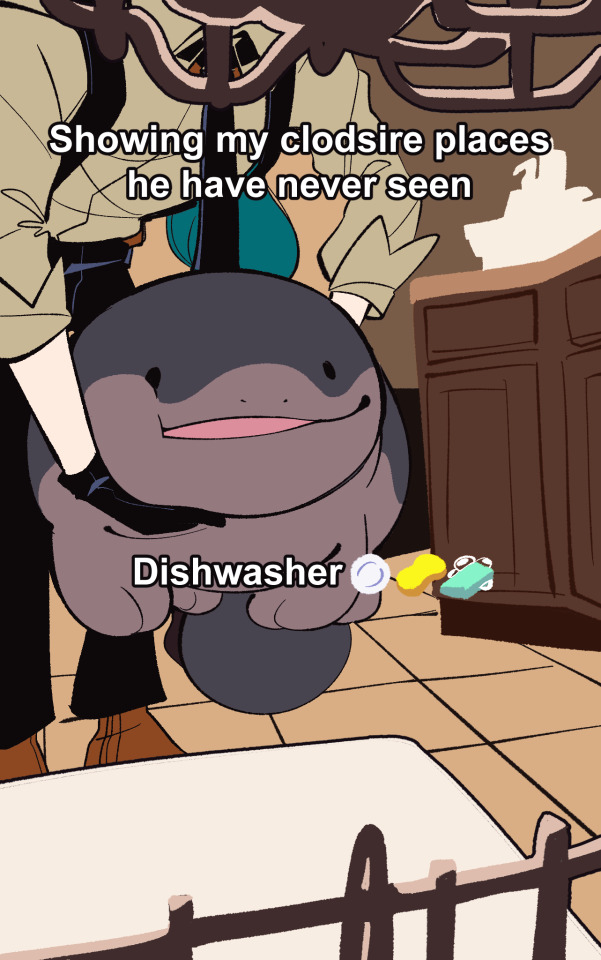
happy rika pokemas day to all who celebrate
20K notes
·
View notes
Text
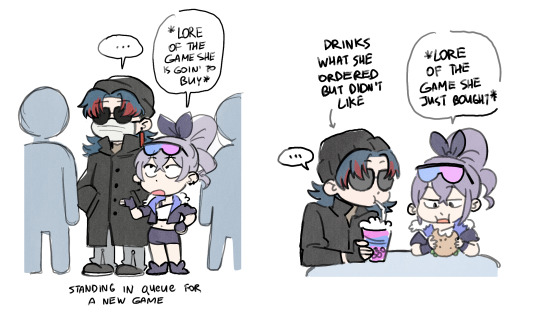

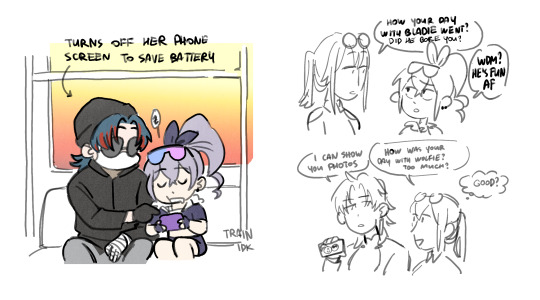
silver wolf and blade quality time
8K notes
·
View notes
Text
fhdfhd got tagged by both sheepy n Jojo im blessed
S- Sad Machine - Porter Robinson
i- It will come back - Hozier
l- Little Fang - Avey Tare's Slasher Flicks
e- Everybody wants to rule the world - Tears for Fears
n- Nameless world - Skip the use
t- The court Jester - Thquib
m- Me and My husband - Mitski
o- Ophelia - The Lumineers
t- Tunnel of love - haroinfather
h- Hollow - Cloudeater
s- Silhouettes - Aviici
Put a song for every letter in your url and tag the amount of people in your url !
Strawberry Blonde by Mitski
The Prettiest Star by David Bowie
Achilles Come Down by Gang of Youths
Rue des trois frères by Fabrizio Paterlini
My Body’s Made of Crushed Little Stars by Mitski
Astronomy by Conan Gray
Nobody by Mitski
Baby Hotline by Jack Stauber’s Micropop
Ultraviolence by Lana Del Ray
Take Me to Church by Hozier
Inertia by AJR
Taking Whats Not Yours by TV Girl
Song About Me by TV Girl
Real Men by Mitski
Eleanor Rigby by Cody Fry
Gloom by Djo
Under Pressure by Queen, David Bowie
Last Words of a Shooting Star by Mitski
United in Grief by Kendrick Lamar
Snap Out of It by Arctic Monkeys
Bourgeoisieses by Conan Gray
Lonley Dancers by Conan Gray
Arabella by Arctic Monkeys
Cigarettes Out the Window by TV Girl
Knee Socks by Arctic Monkeys
this took so fucking long omg
@dandelionflowery @themortalityofundyingstars @pretentious-media @totalcharliespringsimp @absolutelyflabbergasted
@marylily-my-beloved @maeve-occasionally-reads @aestheic-writer18 @nonbinary-wyvern @justafrogghost
@moonyrab @chaserofstars11 @musicoftheheart @icarus-last-fall @saturnsconstellation
@hizzi3spotter @myfavcharacterdidntdrown @lionmythflower @silverameco @my-castles-crumbling
@whyistarchaser @jamespotterbbg @capay9267 @unaesthetic-writer @biblically-accurate-chaos
(i didnt think i knew 25 people but here we are🤷)
451 notes
·
View notes
Note
Squeak! Squeak squeak squeak!!!
(T/N: Please cuddle me and go back to sleep!!!)
ー Fluffli 𖢻 via @the-charanon-initiative

Just waiting for the pain meds and decongestants to kick in bby then i promise its back to sleep
3 notes
·
View notes
Text
love nursing dual middle ear infections
the one time i really REALLY hate stairs in my house
#nearly fell down em tryinga get my fkn mail#and then again for pain meds#please i want to just vibe
2 notes
·
View notes
Text
Love how im just seen as the serial la creatura botherer lmao
but its not wrong i totally am
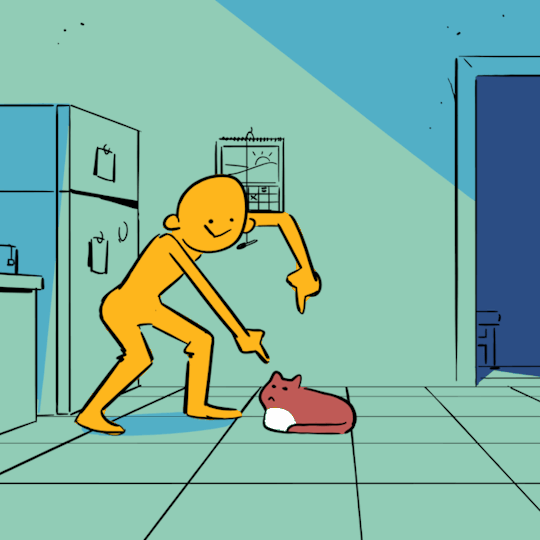
Bothering the beast
165K notes
·
View notes
Text
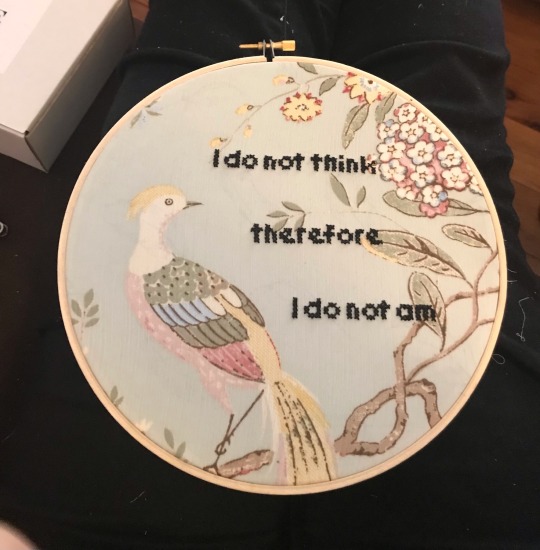

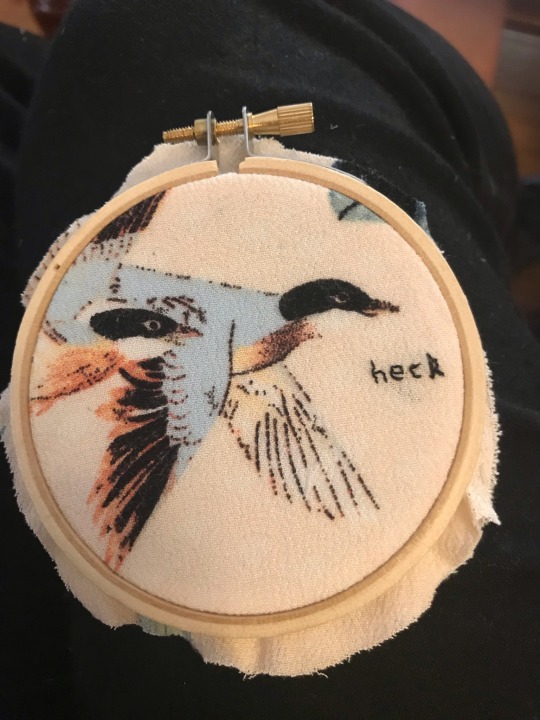
new favourite hobby, stitching dumb shit onto pretty fabric
72K notes
·
View notes
Text
Favorite genre of picture, snakes wrapped around bird beaks.
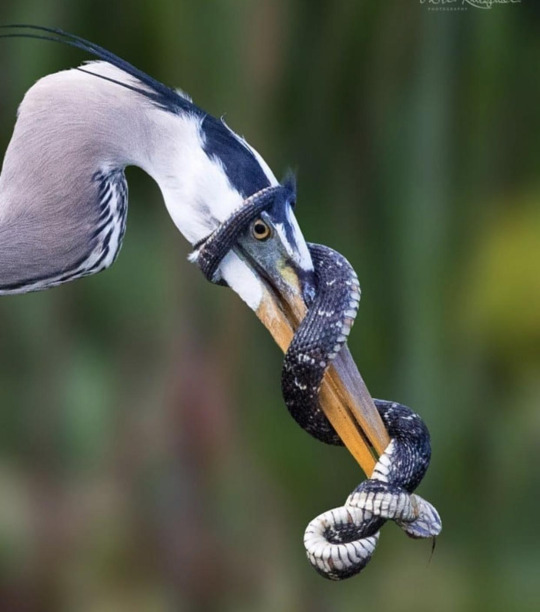
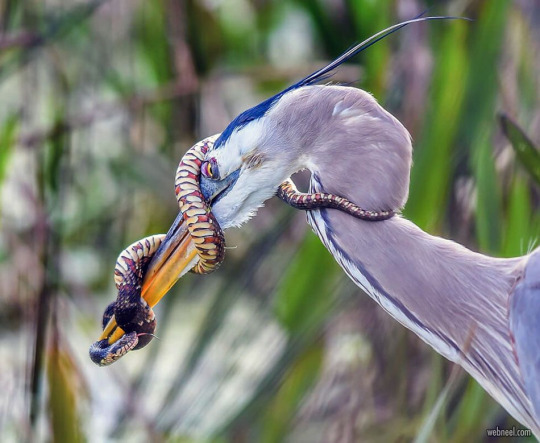
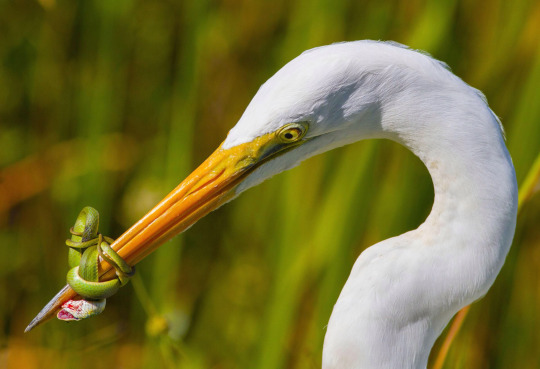
1K notes
·
View notes
Note
I sometimes forget your an aussie and then i look at your moth and. Yeah. Wouldnt be weird if you saw one typing away. Hows the death part of the world looking today?
we'retransitioning into the cooler months and yet somehow my poor airconditioner is still working overtime, we have a problem in our area w snakes oh and no one can afford houses.
so like
average tuesday
6 notes
·
View notes
Text
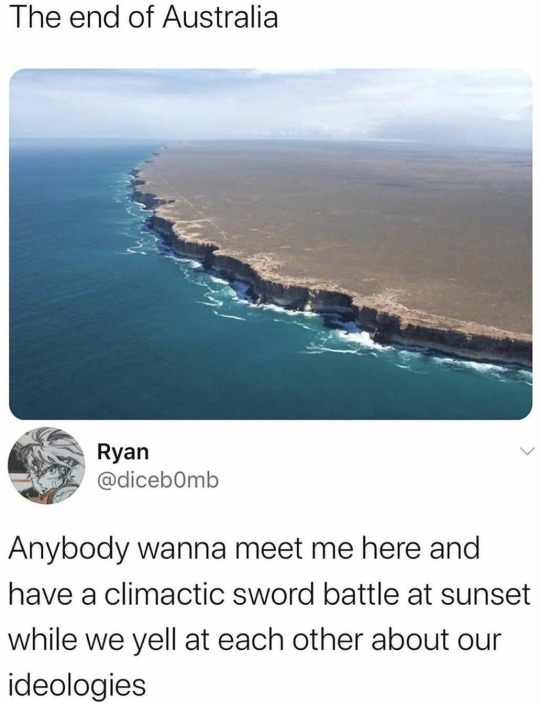
16K notes
·
View notes
Text
The key shortcut of "windows key" and "." held together has changed my life
like

emoji access? supremely powerful 🙂💖
But

Kaomoji ?
The year is 2013 and I am unstoppable ヾ(•ω•`)o o(* ̄▽ ̄*)ブo(*°▽°*)o
213K notes
·
View notes

